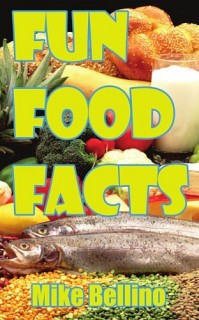
There's no plot or story arc in Fun Food Facts. It's just a collection of interesting food facts laid out in question and answer format one after another in categories like "Butter" or "Vitamins" or "Wine and Beer". Each question is short (generally a few words long: "Why are Greek olives so bitter?") and each answer is often only a paragraph long.
Related Articles
When looking for more food trivia, but in more manageable quantities, I read Robert Wolke's What Einstein Told His Cook and its sequel. Wolke's book is basically a reprint of many food and science essays written in response to reader questions. Each essay is a page or two long, but fairly unrelated to each other (it is a collection of previously written work after all). What Einstein Told His Cook is really closer to pleasure reading for me than anything else - I don't use the books for reference since I have copies of On Food and Cooking around. Even so, there's only the two books and the entries are long enough that I only have time to read one or two at a time.
Bellino's Fun Food Facts is similar to the What Einstein Told His Cook series (except a little better organized) and in small bites. There is no doubt that Fun Food Facts is pleasure reading. Each tidbit of info is interesting and, best of all, short. The brevity leads to reading the next fun fact and then the next one because it's easy to find another 30 seconds to read a little bit more. Having read both On Food and Cooking and the What Einstein Told His Cook series, Fun Food Facts was a great way to continue with more food trivia. If you haven't read McGee's or Wolke's works, then Fun Food Facts is probably a great way to pique your interest since the material is so accessible.
If Fun Food Facts a fun book to read? Yes, definitely! If you like trivia and you like food, you'll enjoy this book.
Fun Food Facts is available in the following formats:
Paperback
Related Articles
